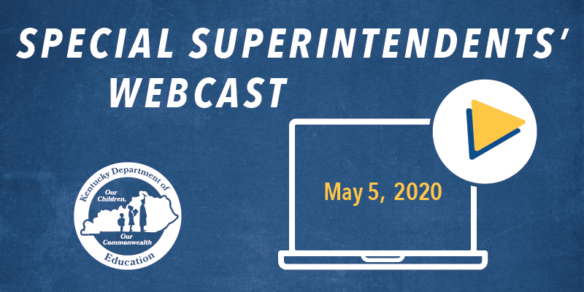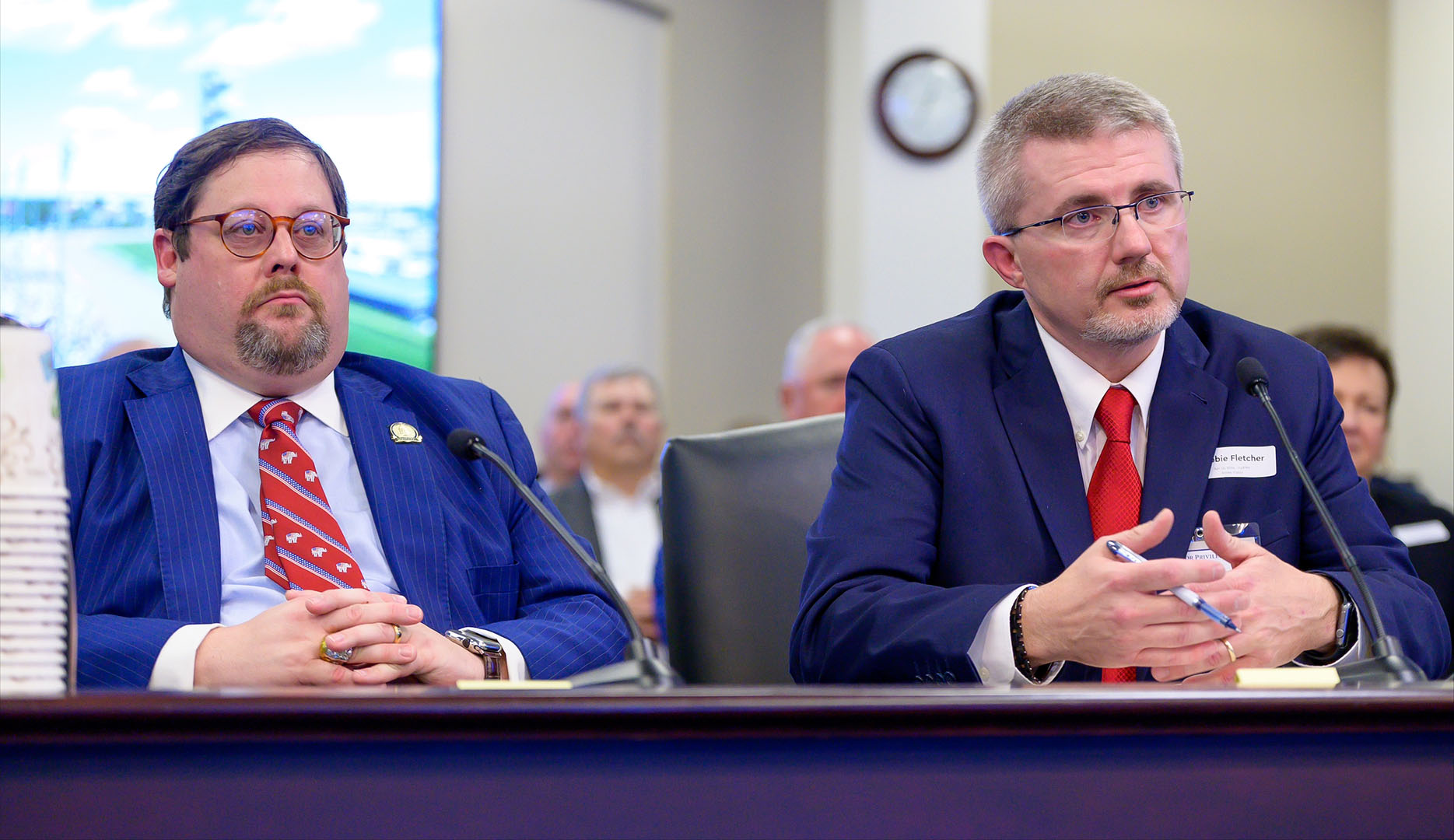
- The Kentucky Department of Education and local school districts are being asked to consider three possible scenarios for when the 2020-2021 school year might start: early, on time or late.
- There are many unknowns about what the start of a new school year might look like in Kentucky schools, and districts should be prepared to adjust their plans.
By Mike Marsee
mike.marsee@education.ky.gov
The Kentucky Department of Education (KDE) is asking school districts to be flexible as they consider their plans for the start of the next school year during the COVID-19 emergency.
Interim Education Commissioner Kevin C. Brown told superintendents of the state’s 172 districts May 5 during a KDE webcast that Gov. Andy Beshear and Lt. Gov. Jacqueline Coleman want to ensure that KDE and local districts are planning for multiple scenarios that might occur before and after the start of the 2020-2021 school year.
He said that planning is already underway, even though there are many unknowns about what the start of a new school year might look like in Kentucky schools.
“The good news is we have some time to plan; the bad news is we don’t know exactly what we’re planning for,” Brown said. “We need every district to be nimble and to be able to adjust to what could be a changing public health landscape in the fall.”
Brown said Beshear and Coleman want KDE and its districts to consider three possibilities for when the next school year might start:
- An early start, perhaps as early as late July;
- A traditional start; and
- A late start, perhaps after Labor Day.
He said an early start could let districts begin the year with in-person instruction if a decline in the number of cases of the coronavirus allows it, with the possibility of a suspension of in-person classes if there is a spike in cases.
Brown told the superintendents they might consider asking their local boards of education to approve multiple calendars to allow for the different scenarios, and districts should be prepared to adapt to changing circumstances near or after the beginning of the school year.
“We don’t know that any of this will occur, but we need in a time of a global pandemic to be prepared,” Brown said.
Brown also said that a resumption of in-person classes might come with a number of changes that will have to be made in the interest of the safety and health of students and staff members. Those could include the use of social distancing both in school buildings and on buses.
He said KDE is working with the Council of Chief State School Officers and the Southern Regional Education Board as it develops guidance for districts, but he stressed that any guidance issued by KDE will focus on what is best for Kentucky’s students.
Brown said planning will continue in the coming weeks and months and will involve districts and partner groups, but the decisions will ultimately be made at the local level.
“We’re not going to dictate from the department what your calendar looks like,” he said. “We’re just telling you about things you’re going to have to be prepared for if the public health landscape changes.”
He said the discussion would continue in greater detail in the next superintendents’ webcast May 12.
Money matters
The superintendents were told that Kentucky received approval May 5 for the largest portion of the money the state will receive for elementary and secondary education from the federal Coronavirus Aid, Relief and Economic Security (CARES) Act. Kentucky will receive $193.2 million from the Elementary and Secondary School Emergency Relief Fund, which is intended to provide local education agencies with emergency funds to address the impact of COVID-19 on elementary and secondary schools.
Robin Kinney, the associate commissioner in KDE’s Office of Finance and Operations, said KDE is still determining the method of distribution and will issue guidance on expenditures.
At least 90% of that money will go to districts and will be distributed through the Title I-A funding formula. KDE anticipates that districts will receive an amount equal to about 83% of what they received in Title I-A funds in fiscal year 2019.
Kinney also said services to school districts will not be affected as KDE meets a targeted budget reduction of $3.1 million prompted by an anticipated revenue shortfall in the current fiscal year. Brown said any future budget reduction likely would impact districts.
In other matters:
- Brown said districts should plan to begin summer feeding programs using the same non-traditional methods by which they have served students in the weeks since the COVID-19 emergency began. Waivers of federal food service requirements that allow for non-congregate feeding apply through June, and Brown said KDE is pursuing a waiver that would extend through the entire summer.
- Superintendents heard details of the requirements for equitable services called for in the CARES Act. Districts must provide equitable services to private schools or home schools that existed within their boundaries prior to March 13 in the same manner as they do under Title I.
- Superintendents were updated on the work of KDE’s Education Continuation Task Force, which held its most recent meeting May 4.
- Superintendents were updated on legislation enacted by the Kentucky General Assembly during the 2020 session that pertains to education.
MORE INFO …
- May 5 Special Superintendents’ Webcast
- Kentucky Department for Public Health’s COVID-19 webpage
- KDE’s COVID-19 webpage
- COVID-19 Hotline (800) 722-5725



Leave A Comment